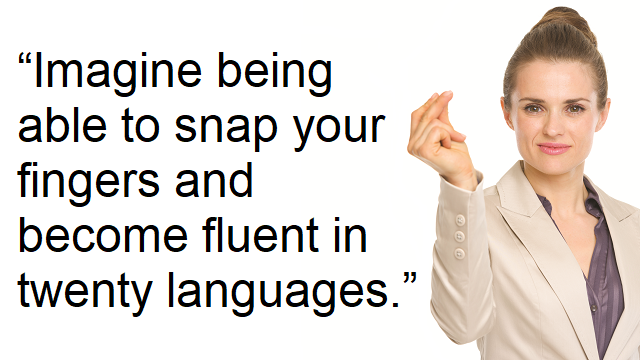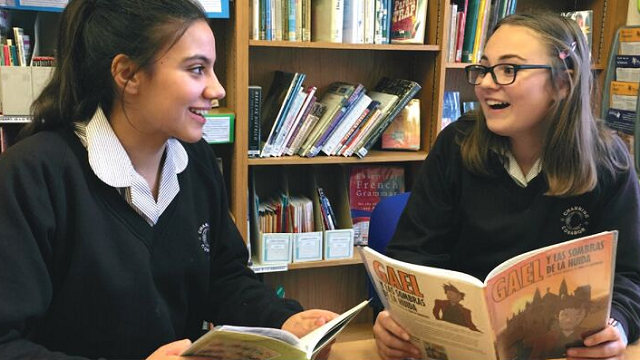-
QUALIFICATIONS
- For Linguists Worldwide
- For UK Public Services
- Preparation
- Policies & Regulation
-
MEMBERSHIP
- Join CIOL
- Membership grades
- NEW for Language Lovers
- Chartered Linguist
- Already a member?
- Professional conduct
- Business & Corporate Partners
-
ASSESSMENTS
- For Second Language Speakers
- English as a Second Language
-
TRAINING & EVENTS
- CPD, Webinars & Training
- Events & Networks
- CIOL Mentoring
-
NEWS & VOICES
- News & Voices
- CIOL eNews
- CIOL Awards
- The Linguist
- Jobs & Ads
-
RESOURCES
- For Translators & Interpreters
- For Universities & Students
- Standards & Norms
- CIOL & AI
- APPG
- In the UK
- UK Public Services
- Find-a-Linguist
Someone to lean on
By Agata McCrindle

Why peer-to-peer mentoring – a sort of supportive partnership – can help with professional development, motivation and accountability.
Mentoring offers personalised support among professionals and boosts career growth. Early examples can be traced back to Greek mythology. In Homer’s Odyssey, King Odysseus goes to war, leaving his son, Telemachus, under the guidance of his old friend Mentor. The term ‘mentoring’ derives from the Greek μέντωρ; the prefix ‘men-’ means ‘one who thinks’ and ‘-tor’ means ‘man’, so ‘mentor’ literally means ‘a man who thinks’. ‘Protégé’ comes from the French verb protéger, meaning ‘to protect’.
Mentoring can take many forms. As an experienced language professional, I’ve had the privilege of mentoring new entrants to our field. This has allowed me to share my knowledge and skills, and enabled my protégés to develop their business practices. But mentoring isn’t just about guiding newcomers. Peer-to-peer mentorship, a form of reciprocal mentoring that fosters mutual motivation, inspiration and accountability among seasoned professionals, has also significantly contributed to my career path. I’ve found immense value in both types of partnership.
The CIOL Mentoring Platform is a great place to start if you are a linguist interested in becoming a mentor or a potential mentee looking for advice and guidance. My own mentoring connections have originated through the ITI Polish Network, which uses an informal matching process.
A focus on business skills
I studied business as an undergraduate and international business as a postgraduate, and have successfully run a translation and interpreting practice for over 20 years. Levering this, I use a conventional business mentoring method to guide industry newcomers through the complexities of managing translation projects and developing essential business skills. Translators often work as freelancers and therefore essentially run small businesses. Many translation graduates find that their course hasn’t really prepared them for that aspect of their career. That’s why business mentoring is helpful, although it is often overlooked in favour of translation skills mentoring.
In guiding my business mentees, the process begins with identifying specific career development goals that they aim to achieve. We go over business skill enhancement in various areas, for example efficient project management, as these skills are crucial for handling multiple assignments and meeting deadlines.
In my experience, understanding the basics of marketing and branding is fundamental. This includes maintaining a professional online presence, showcasing expertise and effectively communicating our value to potential clients. I also teach that building good relationships with clients by responding promptly to inquiries and setting clear expectations can contribute to a steady workload in the long run.
Sharing knowledge about pricing strategies, invoicing, insurance, contracts and continuous professional development helps me reinforce and expand my own understanding of these aspects of the work and keeps me updated on current trends. Things have changed a lot since I first started! Linguists new to the profession bring fresh perspectives and innovative ideas, so it is a win-win situation for both of us.
I use a fixed-term approach to business mentoring because it brings specific benefits. As mentees gain new skills, the structured learning timeline allows them to focus on acquiring targeted knowledge and skills within the defined time period. This motivates them to prioritise what they want to learn in the number of sessions agreed, contributing to a more manageable and organised mentoring journey.
Reciprocal mentoring
While sharing knowledge and expertise is rewarding, my career eventually reached a point where I sought more focused development. I have been logging my CPD for years, but I felt that I needed to reflect more on my development and give it direction. Active participation in various professional organisations and networks made me realise that colleagues often have similar business experiences, allowing us to share our goals and support each other.
This realisation led to a mentoring partnership with my colleague Kate, an experienced translator working from Polish, German and Finnish into English. We meet quarterly online because she lives in Finland and I live in England. Our specialisms differ: Kate works with medical and literary texts, while I mainly work in business and legal sectors. We aim to give our CPD direction and boost our commitment to diversifying our skills, updating our knowledge and adapting to changes in the market.
Through this reciprocal arrangement, I am exposed to more information and ideas, which helps me plan my CPD to enable career growth. It also enhances my confidence in what I am doing. There is a sense of friendly accountability for the set goals. Having regular catch-ups and knowing what each other is doing (e.g. our specialisms) increases the chance of referrals and expands our professional network. We use the opportunity to share our frustrations too, but the meetings are generally positive.
Kate and I are both in a similar situation – neither of us lives in a country where our target language is spoken. This makes it challenging to maintain a native level of proficiency in the language. I was struggling with this a bit. Kate, on the other hand, reads a lot and attends various book clubs. As a busy mum running a translation practice, I found it difficult to commit to daily reading, which is necessary to maintain the required level of proficiency. Kate suggested trying audiobooks and it was a game-changer for me. Now, I listen to Polish books while travelling to interpreting assignments, accompanying my children to sports activities, doing school runs, tidying the house, folding laundry and cooking. I’ve even expanded my playlist to include true crime, news, current affairs and lifestyle podcasts.
Thanks to this regular immersion, I have been able to remember words and phrases I had forgotten, or not used for a while, and I’ve also learnt new slang and
terminology. Language evolves with developments in technology, and cultural and political changes, and maintaining language skills has become a significant portion of my annual CPD, comprising more than half of it. It’s not only essential for my translation practice but it’s also personally fulfilling.
Different partners for different needs
Encouraged by the benefits of my meetings with Kate, I have recently embarked on a new peer relationship with another colleague. Ewa is a Polish conference interpreter, so although we work in the same language pair, we provide different services. The focus of our partnership is on social media presence and marketing. Even though each of us has an established client base and online presence, we both felt that we had reached a plateau. We needed someone to bounce ideas off, inspire and reassure us. Our sessions offer a space to discuss goals and reflect on progress. We meet monthly online as Ewa travels a lot for her work.
In both peer partnerships, we set achievable goals for the next meeting. Admittedly, we don’t always complete our ‘homework’ on time. Still, we are understanding and supportive of each other, and sometimes the idea behind our little project is enough to motivate and inspire us, even when time and other commitments work against us. It keeps the momentum going.
We don’t communicate between formal meetings other than occasionally checking each other’s social media posts and sending a message of appreciation to encourage one another. This strikes a balance between maintaining professional connections and respecting the other person’s time and commitments, giving us the freedom to reflect and make progress on our own terms.
We haven’t established a timeframe for these mentoring relationships; they are ongoing engagements. Fostering a long-term partnership has made a huge difference to my professional life. We benefit from having a constant source of support and guidance. The flexibility of this approach lets us adapt as our needs change, allowing for a well-rounded development of skills over time. Without a fixed endpoint we can consistently set and monitor goals, and it encourages open communication about where we see ourselves in the long run. The sense of community we’ve formed goes hand in hand with the idea of lifelong learning. It has become a foundation for our enduring success in the translation and interpreting fields.
Thanks to collaborative partnerships we can ensure that no translator or interpreter guides their journey in isolation. Freelancing can be a lonely way to work and that’s why cultivating such relationships is crucial. Mentoring is a two-way street, where mentors and mentees mutually contribute to each other’s growth and development. Together with experienced individuals and reliable colleagues, we will not only weather challenges and nurture growth but also foster a sense of connection in what can otherwise be a solitary professional endeavour.
If you are interested in mentoring through CIOL, visit www.ciol.org.uk/mentoring, open to CIOL members. Get involved at www.ciol.org.uk/divisions-societies-networks to grow your informal networks.
Agata McCrindle MCIL is a Polish translator and interpreter. Her professional and academic background is in international business and law. For 15 years, Agata combined public service interpreting with work for commercial enterprises, businesses and chambers of commerce. In recent years, due to outsourcing in the justice sector, she has shifted her focus to direct clients in the private sector.
This article is reproduced from the Summer 2024 issue of The Linguist. Download the full edition here.
More
The Chartered Institute of Linguists (CIOL), Incorporated by Royal Charter, Registered in England and Wales Number RC 000808 and the IoL Educational Trust (IoLET), trading as CIOL Qualifications, Company limited by Guarantee, Registered in England and Wales Number 04297497 and Registered Charity Number 1090263.








